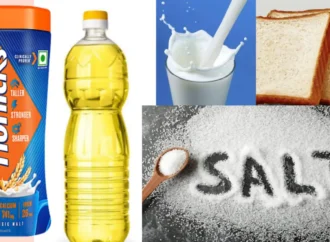Key Development
Walmart has recalled several batches of its Great Value brand frozen raw shrimp after U.S. health officials found traces of a radioactive substance. The U.S. Food and Drug Administration (FDA) says the shrimp may contain low levels of Caesium-137, which could pose a small health risk over time. The shrimp came from Indonesia and was imported by a company called PT Bahari Makmur Sejati (BMS Foods). U.S. Customs and Border Protection first discovered signs of Caesium-137 in shipping containers arriving at ports in Los Angeles, Houston, Miami, and Savannah.
FDA Finds Contamination in Sample Shrimp
After customs flagged the containers, the FDA tested several samples. One sample of frozen breaded shrimp showed traces of the radioactive material. Although the levels were low and below FDA safety limits, the agency decided to act out of caution. Further investigation revealed that Walmart had already received shipments from the same supplier that were not flagged at the ports. These shipments may have included contaminated products.
Details of the Recalled Products
Walmart responded quickly by removing the affected products from its stores. The recalled shrimp includes the following:
- Brand: Great Value frozen raw shrimp
- Lot codes: 8005540-1, 8005538-1, 8005539-1
- Best-by date: March 15, 2027
The shrimp was sold in 13 states: Alabama, Arkansas, Florida, Georgia, Kentucky, Louisiana, Missouri, Mississippi, Ohio, Oklahoma, Pennsylvania, Texas, and West Virginia.
What Should Customers Do?
The FDA has advised customers who purchased the recalled shrimp to throw them away immediately or return them to any Walmart store for a full refund. Even though the risk is low, the FDA says avoiding exposure is the safest choice.
Experts Say Risk Is Very Low
Dr. Donald Schaffner, a food safety expert at Rutgers University, said that the chances of someone getting sick from this shrimp are very low. However, he supports the recall as a careful step to protect consumers. Caesium-137 is a byproduct of nuclear activity, such as power plant operations and weapons testing. Although small amounts already exist in the environment, it’s still important to avoid unnecessary exposure, especially through food.
Source: The Guardian
 Food Manifest
Food Manifest 


















